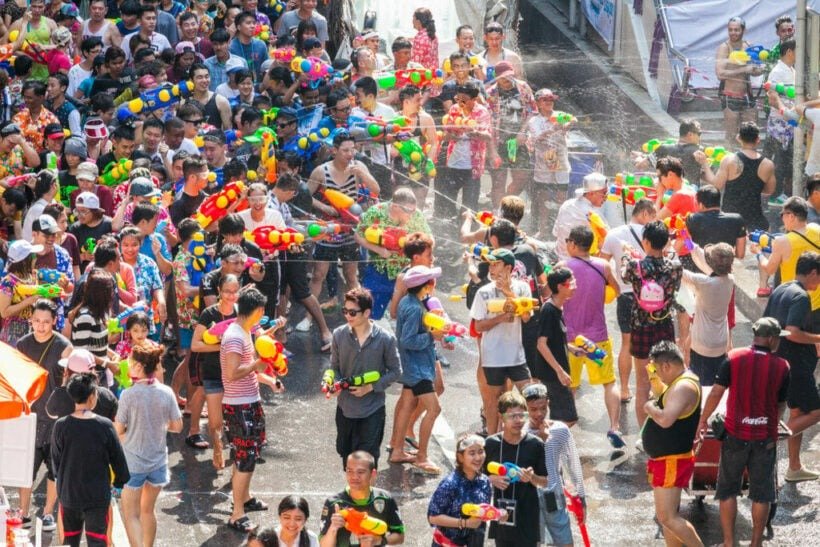BANGKOK — The arrival of another Thai New Year is always a time of celebration for the Kingdom, whether it’s rural families looking forward to reunions with loved ones and a traditional blessing ceremony, or young people and fun-seeking tourists who plan to party for three days straight in the social centers of Bangkok and Chiang Mai.
It’s also a time of great renewal, especially for the indigenous populations of water-borne human pathogenic bacteria and viruses, who look forward to the annual April festive season as their best chance of the year to find new hosts and travel opportunities.
“Songkran is a water-borne bacterium’s dream come true,” explained Sample B-X7845, a spokes-bacterium for the Cryptosporidium Bacteria Union of Thailand. “You’ve got thousands of people gathered in small cramped places, soaking wet at temperatures between 29-42C, and all of them touching each other’s faces with their hands. From an infection point of view, it just doesn’t get any easier.”

Its sentiments were echoed by other members of the Cryptosporidium community, who often refer to the Songkran holiday as “Surfing Day” because a single colony can reportedly travel through up to 45 hosts in a single hour.
Cryptosporidiosis, the disease caused by incubation of the bacteria in the gastrointestinal tract, results in cramping and severe diarrhea and can be fatal to those with compromised immune systems. Recent advancements in water treatment and hygiene, however, have retarded its spread by up to 80% in developed countries.
Yet it has proven stubborn in the tropics and Songkran is considered by epidemiologists to be the annual setback. “You think we’re gone, but after 24 hours on Kao San Road, we’re back, baby!” said B-X7845.

His enthusiasm is shared by other members of the Siamese pathogen community, including the Salmonella, Shigella, and E. Coli bacteria populations. Several viruses, including perennial party-goers Hepatitis A and Influenza, are reportedly also stepping up their Songkran celebration plans.
According to a press release by the H5N1 Society, a trade association representing the interests of highly contagious flu viruses, “Songkran 2008 will be an historic event.” It has been speculated that the high price of fuel has canceled the travel plans of many in Bangkok, resulting in potentially larger parties of wet, face-sliming, drunk, immune-compromised people mashed together in hygienically apocalyptic conditions.
Various pathogenic organizations have already released optimistic projections for second-quarter infection growth rates, with many records expected to be broken. Cryptosporidium is hoping to break the 10 million-mark for the first time in Thai history.
“It would be a tipping point,” enthuses B-X7845. “With so many foreign tourists in Chiang Mai and Bangkok getting infected and carrying our members back to their home countries, this could well be the year we get back on the CDC’s Top Ten List of water-borne threats to humanity. I get chills just thinking about it.”
Asked about the possible threat to its human citizens and any recommended preventative measures, the Thai Health Ministry responded by reminding everyone that girls should dress modestly and that boys should behave politely.


